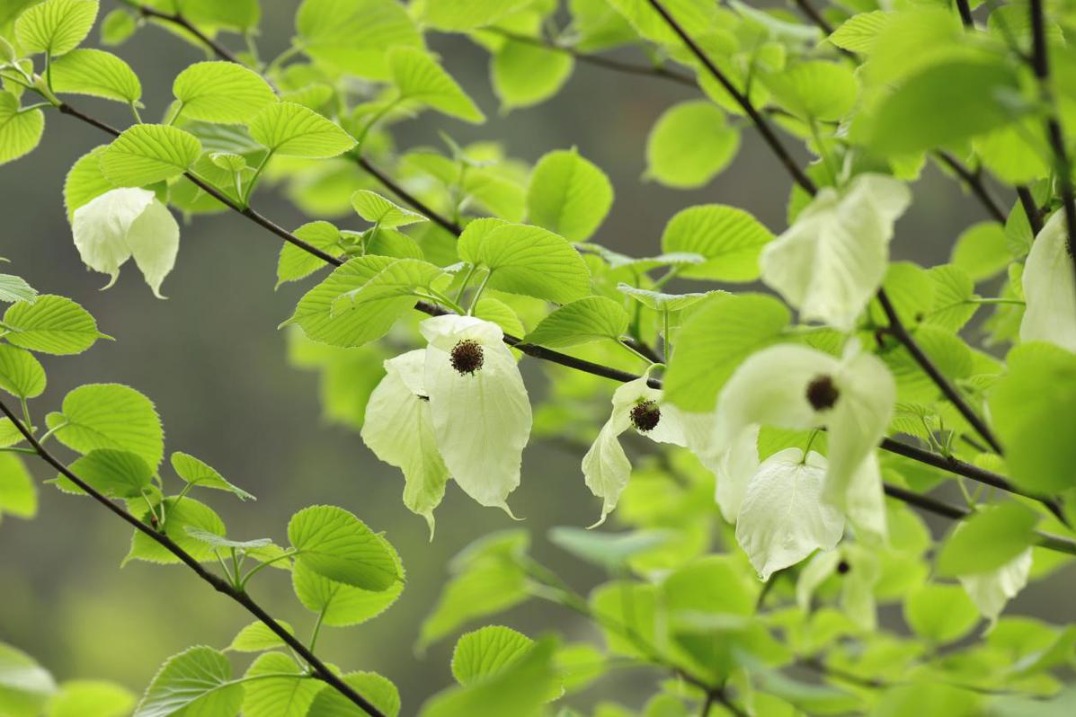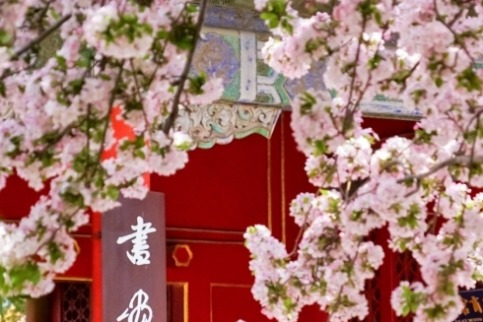害群之马和神秘的鲍勃叔叔:跟家有关的习语
英国使馆文化教育处 2019-05-06 14:35

by Keith Sands凯斯•桑兹

I’m an English teacher working in Russia, and for some reason I really don’t like that classroom topic - Talk About Your Family. Perhaps it’s because everyone studied English from the same book at school. So all the students say, “My family consists of five members. Me, my mother, my father, my brother and my dog…” And so on. As if all families are exactly the same.
我是俄罗斯的一名英语教师,由于某些原因,我真的不喜欢班级讨论的话题-比如介绍你的家庭。也许,这是因为每个人在学校里学的是同一本英语书。所以,所有的学生都会说,“我的家庭由五个成员组成。我,我的妈妈,我的爸爸,我的哥哥和我的狗……”诸如此类。感觉所有的家庭是完全一样的。
It’s such a shame, because our families are unique. All families have their stories, their dramas, their private jokes, nicknames and phrases. They’re the place where our personalities were made. How often have you heard someone with young children complain “Oh no, I think I’m turning into my parents…”?
这其实是很遗憾的一件事,因为我们的家庭都是独特的。所有的家庭有他们自己不一样的故事,情节,笑话,昵称以及说话方式。那是塑造我们性格的地方。你应该经常会听见某个有小孩的人抱怨:“噢,不,我的生活正变得像我父母那样……”?
The other day I found myself turning into one of my grandparents. I was trying to get my daughter (1 year and 8 months old) to eat her dinner and I said “That’ll make your hair curl.” Now, I don’t think that green vegetables give you curly hair, or even that curly hair is a great thing to have. It’s just a phrase I heard from my Granddad a hundred times when I was small. It had stayed in my mind, half-forgotten, until the time I could use it myself. I wonder if he heard it from his own grandparents? How many other old-fashioned phrases like this stay inside families, when the rest of the world has forgotten them?
有一天,我发现我自己正变得像我祖父母那样了。我正努力让我女儿(1岁8个月)吃晚饭,我说:“那会让你的头发变卷的。”现在,我认为绿色蔬菜并不会让你头发卷曲,或甚至卷发并不是很棒的东西。这只是我小时候,听祖父说了无数次同样的话。这句话在我心里面,已被我忘记了一半,直到我可以自己用这句话。我很好奇这句话是否是祖父从他自己的祖父母那儿听来的。当世界其它地方已经忘记这样的老式说法,又有多少还保留在家族里面呢?
Shaking the family tree 摇摇族谱大树
Talk about your family? “Well…they’re just there”, we say. Our families are so ordinary to us that we even think they’re boring. Not a bit of it! Families are the most exotic things on earth. If you dig enough in your own family, you’re sure to come up with all the stuff you could want for a great novel. Surprising characters, dramatic or funny stories passed down for generations, or a face from the past you recognise – maybe in your own. Someone or something unique to your family. Or, as genealogists like to say, “Shake your family tree - and watch the nuts fall out.”
谈谈你的家庭?“嗯……他们就在那儿”,我们说。对于我们来说,我们的家庭很普通以致让我们觉得无趣。不过根本不是这样的。家庭是地球上最吸引人的东西。如果你对自己的家挖掘得够多的话,你一定会想到足以写成一本伟大小说那么多的东西。家人那些让人惊奇的性格特点,流传一代又一代的戏剧性的或有趣的故事,或一张你熟悉的来自过去的脸-也许是你自己的事情。对于你家里面来说,那些独特的人或事情。或者,就像系谱专家喜欢说的:“摇摇族谱大树-看看掉下来的果实。”
My mother started tracing our family tree a few years ago, not expecting to get far. But, digging in old records and libraries she got back three hundred years. She turned up old stories and a few mysteries. What happened to the big family farm? Where did the family fortune go in the 1870s? More to the point – where is it now?
我妈妈几年前就开始研究我们的族谱,并不指望深度研究。在旧记录,旧书库里翻查后,她了解到了三百年的家族史,发现了不少老故事和神秘事件。家族的大农场到底发生了什么事情?19世纪70年代的家族财产去了哪里?问得更直接一点—这些财产现在在哪里?
I’m the traveller in my family, and I like to think I got it from a great-grandfather on my Dad’s side. He was an adventurous soul. My two favourite family heirlooms are a photo of him on a horse in a desert landscape (1897 in Patagonia) and a postcard home from Portugal complaining that his boat was late because of the Revolution in Lisbon. “Dreadful business, they seem to have arrested the King...” he says. If you look at your family, you open a window on the past.
我是家里最爱旅行的那个,我觉得这是从我曾祖父身上遗传下来的。他有一颗冒险的心。我最喜欢的两件传家宝是他在荒野骑马的照片(1897年摄于巴塔哥尼亚)和一张从葡萄牙寄回家的明信片,他抱怨里斯本在闹革命,这导致他的班船晚点了。“可怕的事情,他们似乎逮捕了国王……”他说。如果好好看看自己的家族,你就能打开通向过去的一扇窗户。
History in miniature 历史缩影
Start someone talking about their family stories and they might never stop. You’ll find the whole history of your country there, too. When my mother, still putting the family tree together, asked me for a few names from my Russian wife’s family, my wife got on the phone to her own mother. Just to check a name or two. But they were still talking an hour later, and she’d filled 5 pages of A4 paper. And so I was introduced to: someone who lived through the siege of Leningrad (but forgot how to read in the process), a high official in the Communist Party, and some rich relations who used to go to Switzerland for their holidays before the Revolution. There was also a black sheep of the family (or “white crow” as they say in Russian) who left his wife and children and disappeared in the Civil War – though nobody in the family knows which side he fought on. All these people seemed impossibly exotic to me.
让某人开始讲他家的故事,很可能就永远停不下来。你可以从中发现你的国家的整个历史。母亲在拼凑族谱时,问了我一些我的俄罗斯妻子家人的名字,我妻子打电话给她妈妈,只是问到了一两个人的名字。但一个小时过去了,她们还在电话里聊着,妻子最后做了5页A4纸的记录。然后,她就跟我介绍这些人:当时某个生活在列宁格勒围城的人(忘记他/她的名字怎么念了),一个共产党高官,还有一些在大革命前常去瑞士度假的富亲戚。其中有一个“黑羊(败家子)”(俄罗斯语中称为“白乌鸦”),丢下他的妻子和孩子,在内战中失踪了——尽管家族里没人知道他为哪一边而战。这些人对我来说简直像天外来客一样。
Who wears the trousers? 谁穿裤子?
To go back to that English class then, let’s get rid of the phrase “my family consists of…” and look at some more interesting ways to talk about families. English is rich in idioms to talk about family life. We’ve mentioned the black sheep of the family – that’s someone who didn’t fit in, or caused a family scandal. If you’re loyal to your family, you can say blood is thicker than water or keep it in the family. If you share a talent with another family member, you can say it runs in the family. You might have your father’s eyes or your mother’s nose. If you’re like one of your parents, you can say like father, like son or you can be a chip off the old block.
我们再回到英语课堂,不谈“我的家庭由……组成”,让我们看看一些有趣的介绍家庭的方式。英语里,用于谈论家庭的习语有很多。我们已经提到了家族里的“black sheep”(败家子)—就是那些不合群或让家族蒙羞的人。如果你忠于你的家族,你可以说“ blood is thicker than water (血浓于水)”或者“ keep it in the family(让它成为家族的秘密)”。如果你和另一位家族成员有同样的天赋,你可以说“it runs in the family(一脉相承)”。你可能眼睛像父亲或鼻子像母亲。如果你长得像父亲或母亲,你可以说“like father, like son(有其父必有其子)”或“you can be a chip off the old block(和他们一个模子刻出来的)”。
Who wears the trousers in your family? (Who’s the head of your family?) You might affectionately talk about your bro, your sis or your folks (parents). Or if you like Cockney slang, what about her indoors or the missus to talk about your wife? Though both these phrases make feminists reach for their guns.
你家谁穿裤子?(即,谁是你家里的老大?)你可能会亲切地谈起你的兄弟,姐妹或你的亲属(父母)。或者你喜欢老伦敦的俚语,谈论起你的妻子,你可以用“her indoors(内人)”或“the missus(太太)” 。尽管这些习语会让女权主义者气得想掏枪。
If you want to get more technical, you can discuss the benefits of the nuclear family: a small family, just parents and children living in the same house. If grandparents or other relatives live there too, then you have an extended family. In English we talk about the average nuclear family with the phrase 2.4 children.
如果你想深入使用一些术语的话,你可以谈谈核心家庭的好处:核心家庭即是小家庭,只有父母和孩子同住一个房子里。如果祖父母或其他亲戚也住在那儿,那么你就有一个大家庭。在英语中,我们用“2.4 children”来描述一般的小家庭。
Then there are idioms that have left the family (flown the nest) and gone on to have a life of their own. You can’t teach your grandmother to suck eggs. It means you can’t tell your elders anything they don’t know already. But why would anyone want to suck eggs anyway? Now here’s a really strange one. A Londoner is telling someone how to get a new passport. “Get four pictures taken, pick up a form in the post office, hand it in with your old passport and …Bob’s your uncle.” It means “the problem is solved”. But I’d love to know who the original Bob was, and why he was such a useful uncle to have.
另外还有一些习语,偏离了原有的意思,衍生出了另外独立的意思。“You can’t teach your grandmother to suck eggs.”意思是别在长辈面前班门弄斧。但为什么会说“吃鸡蛋”?接下来这句才是奇怪的习语。一个伦敦人告诉某人如何拿到护照。“照照片,在警察局填好表格,表格和你的旧护照一起上交……问题解决了。”“Bob’s your uncle.(鲍勃是你叔叔。)”意思是“问题已经解决了。”但是我想知道最初的鲍勃是谁,为什么那个叔叔这么有用。
















